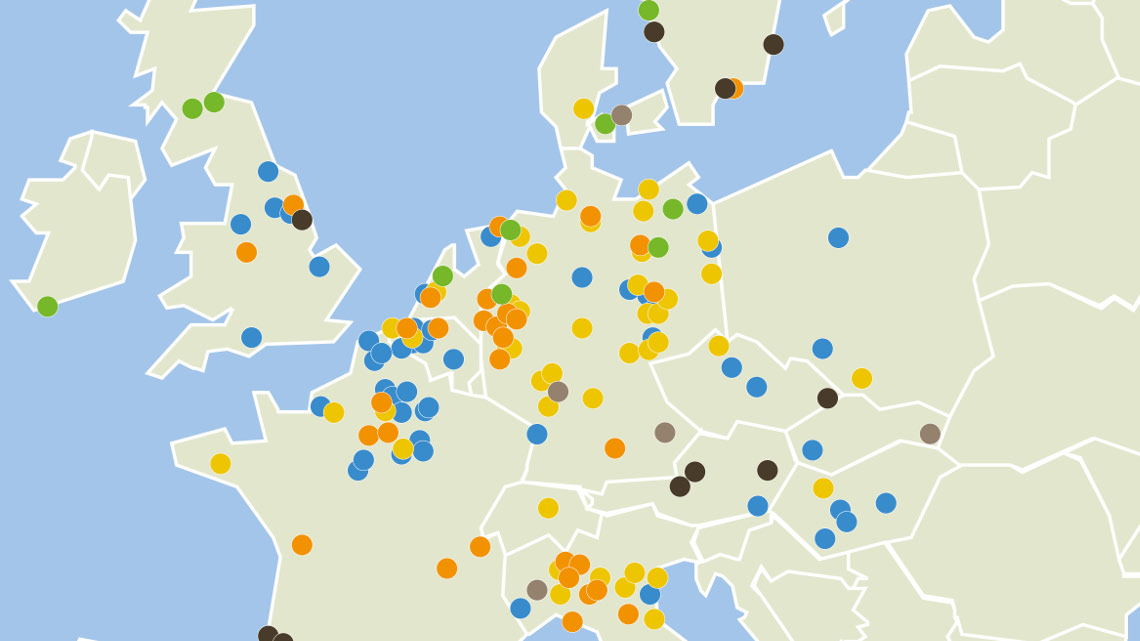Mapping European biorefineries
According to a recent study, there are 224 biorefineries online in Europe. The platforms differ by region, depending on the available resources.

Biorefineries turn biomass into useful chemicals or raw material that can be processed into bio-based products. But where are they located? And what type of biomass are they using? To answer these questions the Cologne-based nova-Institute conducted a comprehensive survey of all European biorefineries over the summer of 2017. The project was done on behalf of the Bio-based Industries Consortium (BIC), a non-profit organisation set up in Brussels in 2012. The results, a complete map of all biorefineries across Europe, show that the type of biorefinery is very much dependent on the locally available biomass.
224 biorefineries across six categories
In order to gather the necessary data, the private research and consultancy nova-Institute evaluated a large number of sources and carried out an online survey, during which biorefineries could register themselves. Depending on the biomass used and the final product, the map distinguishes between different biorefinery categories
A total of 224 biorefineries were identified and mapped across Europe: 63 sugar-/starch based biorefineries that produce bioethanol and other chemicals, 64 oil-/fat-based biorefineries producing biodiesel, 54 oil-/fat-based biorefineries resulting in oleochemistry, 25 wood-based biorefineries – excluding those that produce pulp for paper only – and five biorefineries using lignocellulose other than wood, as well as 13 biowaste-based biorefineries.
Local prevalence depending on available biomass
The prevalence of the different types biorefineries differs considerably between countries. While wood-based biorefineries can be found mainly in Northern Europe, sugar-/starch based biorefineries are mainly located in France, Belgium, Germany and Hungary, since there are high yields in sugar and starch. Several dozens more biorefineries are currently under construction. The map will be updated annually and can be downloaded at www.bio-based.eu/graphics or http://bioconsortium.eu.
jmr


